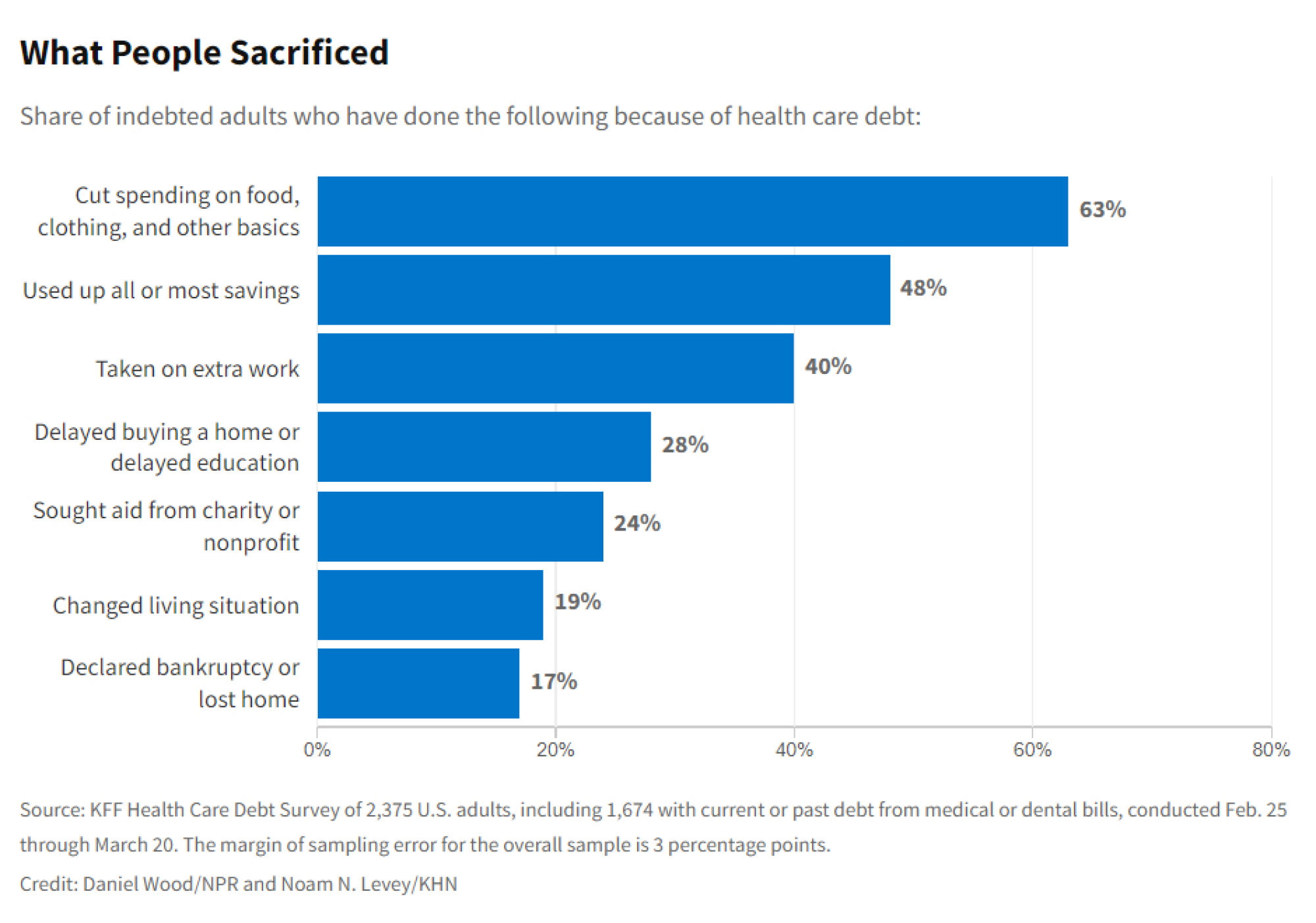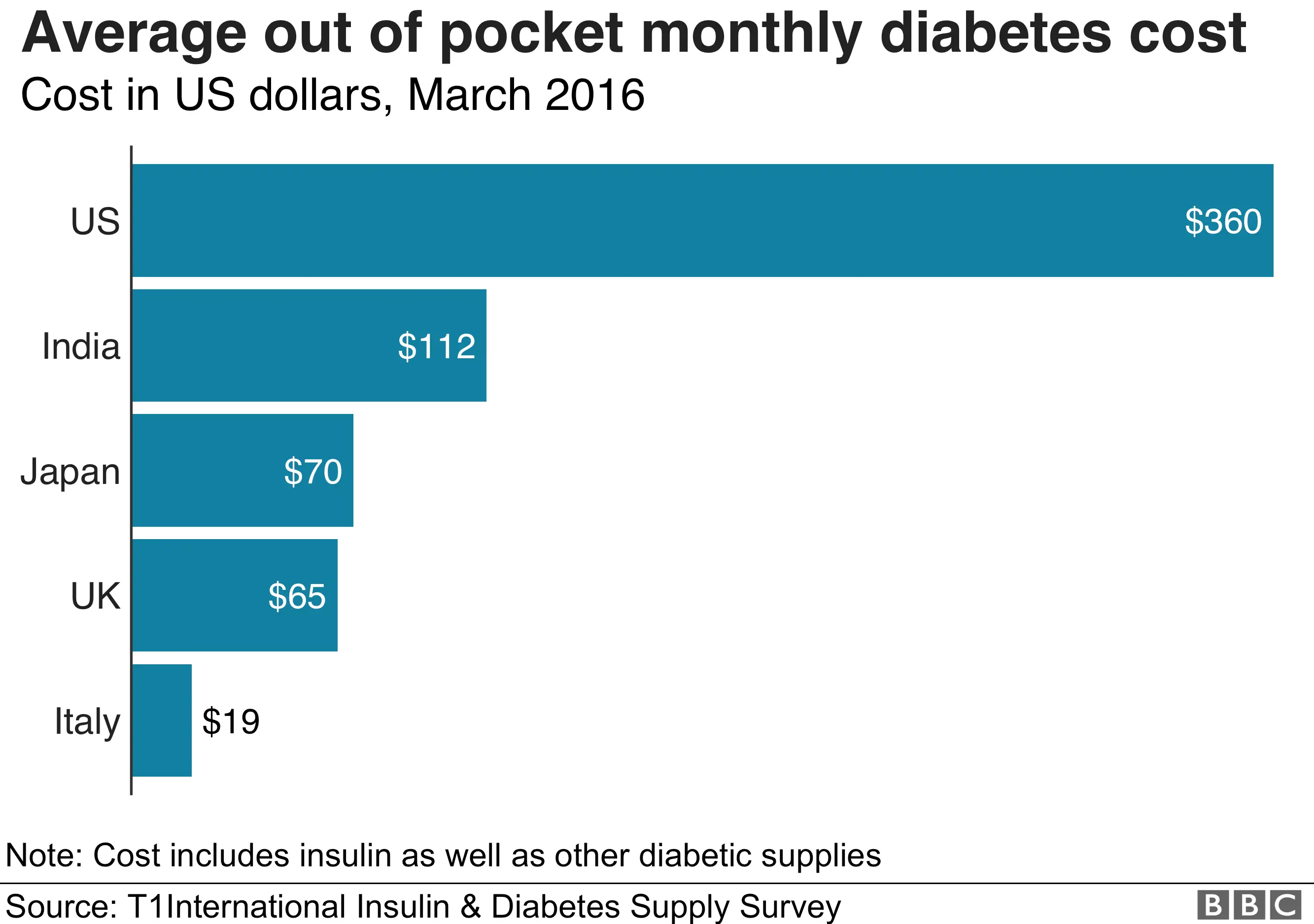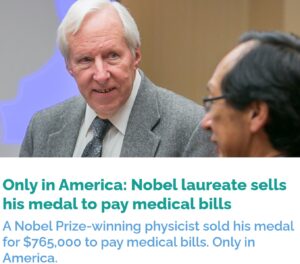Problem
The United States is one of the few countries in the world without universal healthcare (whether socialized or federally insured). Healthcare is not privatized in most of the world because of the belief that people should not profit from others’ death and suffering; healthcare costs are highly inelastic (there are no “buy one get one free” heart surgeries), meaning that people can be easily exploited: they will either pay or die. While this is very profitable for the medical industry and investors, it is harmful to citizens.
Healthcare in America is privatized and suffers from not only high costs but poor outcomes in infant mortality, life expectancy, and a variety of other health conditions. “Medical vacations” are now common, where citizens leave the U.S. to be treated in other countries that are more affordable and suitable for their needs.
The United States also has the notorious achievement of a medical bankruptcy industry, a baffling economic feature to any other society on the planet. Millions, not thousands, of American citizens are skipping meals to pay for medical debt, which only compounds chronic health problems. In a private system, there are also no financial incentives for developing cures to highly lucrative conditions such as cancer and diabetes. A market-based and profit-based system produces the most profitable results for a minority, not the most beneficial, healthy, and enjoyable results for the majority.





Solution
The 35th Amendment ensures that the government pays for all medical expenses of the citizenry, and also cancels all medical debt. The Amendment also ties the payment of medical expenses to the (incomprehensibly large) defense budget. This limits the military-industrial complex (something no law or government has yet been able to achieve) while ensuring adequate funding for healthcare at the same time.
The Text of the 35th Amendment
Section 1. Single-Payer Insurance
The government shall pay all medical expenses for the citizenry and residents, including primary care, psychiatric care, mental, emotional, and relational care, dental care, surgery, medication, physical therapy, and other essential treatments. Non-essential care shall not be federally insured. Healthcare that cannot be clearly classified as either essential or non-essential care by the courts shall be insured at a 50% rate. Non-residents in the United States, such as tourists, visitors, and other non-citizens and non-residents, shall be insured at a 50% rate.
Section 2. Funding and Support
Should funds be lacking for the government to adequately pay for medical expenses, additional funds shall, without further approval, deliberation, or delay, be automatically transferred from the defense budget and accounts, and may continue to be transferred until the defense budget depletes to 12% of the total federal budget. Government departments and/or agencies have the right to democratically establish prices to ensure adequate services to clients within given budget constraints and to prevent private exploitation of public funds. Shortages in staff and services shall be addressed by federal subsidizing of health and medical school(s), changes to policy and procedures for effectiveness, and by any other necessary and just measures to ensure a functional and satisfactory healthcare system for both providers and patients.
Section 3. Patient Choice and Informed Consent
Citizens shall have the right to choose their healthcare providers and have access to information necessary for making informed decisions about their health. The government shall establish accountability and transparency within the healthcare system to empower patients in their choices while also respecting the privacy of client information and appropriate independence of healthcare providers.
Section 4. Continuous Improvement and Adaptation
The People’s House and Executive Board, and their committees, on federal and state levels shall regularly review and adapt healthcare policies and administrative procedures to respond to changing healthcare needs, emerging medical technologies and developments, and advancements in healthcare delivery. Citizen input and expert consultation shall inform ongoing improvements to the healthcare system through appropriate government departments and democratic committees formed under the People’s House and Executive Board.
Section 5. Implementation Schedule and Medical Debt Cancellation
All personal outstanding and pending medical debt for citizens shall be immediately canceled upon approval of this Amendment. (Medical debt accrued before approval shall be considered pending medical debt subject to cancellation upon approval.) The remainder of this Amendment shall come into effect within eighteen (18) months after approval.